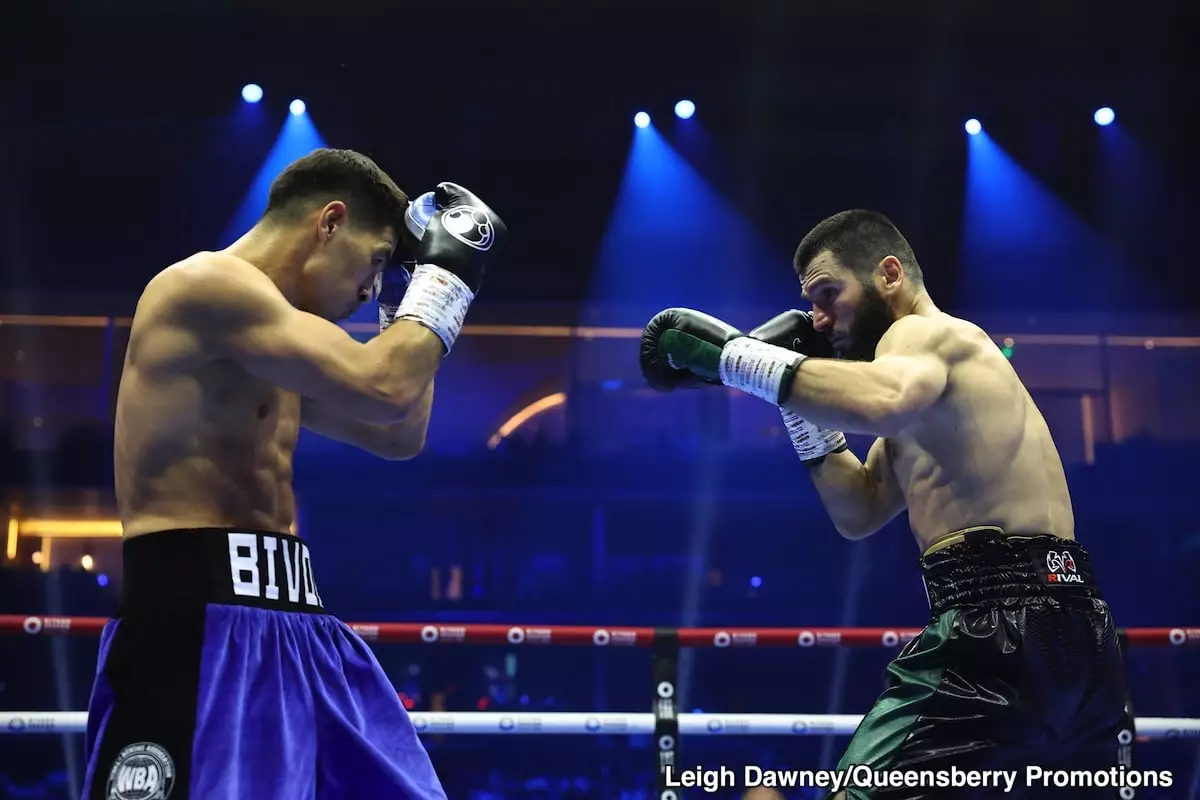The Aftermath of Bivol vs Beterbiev A Call for Reflection and Rematch
Boxing fans around the world recently witnessed a highly anticipated face-off between Dmitry Bivol and Artur Beterbiev. The bout quickly became a hot topic, stirring discussions about judging, strategy, and what could come next. As someone who has been following boxing for years, these moments remind me of why I fell in love with the sport. There is something magical about the anticipation, the debate, and the sheer unpredictability of each match.
After Bivol’s loss to Beterbiev via a 12-round majority decision on October 12th in Riyadh, Saudi Arabia, it was clear that this fight was far from over. His protest with the four governing boxing bodies has sparked significant debate. The fairness of the decision is under scrutiny, as well as his overall performance during the match. It’s reminiscent of those times in life where you feel like you’ve given your all but things don’t quite go your way.
When discussions like these arise in the boxing community, they often evoke strong emotions and opinions from fans and analysts alike. It’s fascinating how a single fight can become a focal point for broader issues within the sport. As someone who enjoys both cooking and boxing, I often find parallels in how ingredients or strategies can come together to create something unexpected and thought-provoking.
Key Takeaways
- Bivol’s protest has led to heated debates about fairness in boxing decisions.
- A rematch could be crucial for Bivol to regain his standing in the sport.
- The dynamics of strategy and audience perception play critical roles in boxing outcomes.
The Controversy Unfolds
Following the fight, Bivol’s camp insisted that many viewers believed him to be the true winner. However, relying on public sentiment rather than empirical evidence tends to weaken an argument. In official discussions, facts and statistics carry more weight than perceived fan opinions. This move by Bivol’s team might be seen as an expression of frustration rather than a solid basis for a rematch request. Such assertions could also be perceived as poor sportsmanship rather than an honest plea for competitive integrity.
The call for a rematch highlights discussions about Bivol’s fighting style—a style characterized by evasion over engagement. While defensive strategies can accrue points, they may not capture the judges’ favor or entertain audiences craving action-packed exchanges. Boxing is as much about entertainment as it is about athleticism; thus, a fighter’s approach must balance both elements to sway judges and captivate viewers.
A Fight of Contrasts
Critics have pointed out that Bivol’s passive approach significantly influenced the fight’s outcome. As the rounds progressed, Beterbiev capitalized on his power and aggression. Gareth A. Davies from talkSport Boxing noted that Bivol seemed overwhelmed in the later rounds, which might have swayed judges’ votes toward Beterbiev’s relentless style. When examining performance metrics, it’s challenging to justify a protest when one fighter appears dominant during pivotal moments.

The analysis reveals key moments where Bivol failed to assert dominance effectively. Initially displaying commendable agility and movement, his tactics unraveled as fatigue set in. By the seventh round, desperation became evident through clinches aimed at stalling Beterbiev’s advances. Fans and commentators alike questioned whether Bivol had held back tactical surprises or simply struggled to maintain composure under pressure.
The Prospect of a Rematch
The idea of a rematch holds immense appeal for many boxing enthusiasts eager to see whether adjustments could alter the narrative or replicate past results. Should this opportunity arise post-protest, it becomes imperative for Bivol to rethink his strategy significantly. Fighting in a smaller ring could limit his maneuverability while forcing more direct exchanges—a potential game-changer if he embraces aggressive engagement rather than relying on evasive maneuvers alone.
The timing of such a rematch also bears strategic importance given other high-profile heavyweight prospects like Canelo Alvarez or David Benavidez waiting on deck for potential clashes with either fighter involved here today! Prioritizing these opportunities may eclipse revisiting unfinished business between them altogether depending upon factors including age-related considerations influencing future pursuits entirely!
Final Thoughts
The situation surrounding Dmitry Bivol versus Artur Beterbiev epitomizes broader conversations within professional boxing concerning strategy roles alongside viewer perception alongside official judgment protocols alike! While protests generate attention—potentially compromising reputational standing—it ultimately underscores how decisive execution outweighs attempts manipulating sentiments beyond confines limitations otherwise imposed inherently throughout competitive sports arenas worldwide today!
Bivol must introspectively refine tactics while embracing open-mindedness toward proactive engagement—potentially revitalizing career trajectory positively under right conditions altogether! However overshadowing rematch prospects amid clouded controversy risks detrimental consequences outweighing benefits derived therein inevitably!

As events unfold surrounding this scenario—the stakes continue rising not merely personal narratives but encompassing entire sporting domain holistically speaking ultimately! How developments play out remains keenly anticipated amongst audiences spanning globe eagerly awaiting resolution forthcoming anytime soon hopefully!
Bivol Beterbiev boxing rematch sportsmanship boxing strategy


Leave a Reply